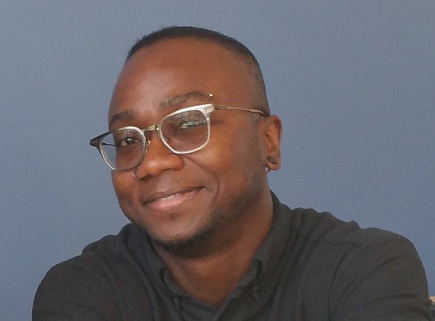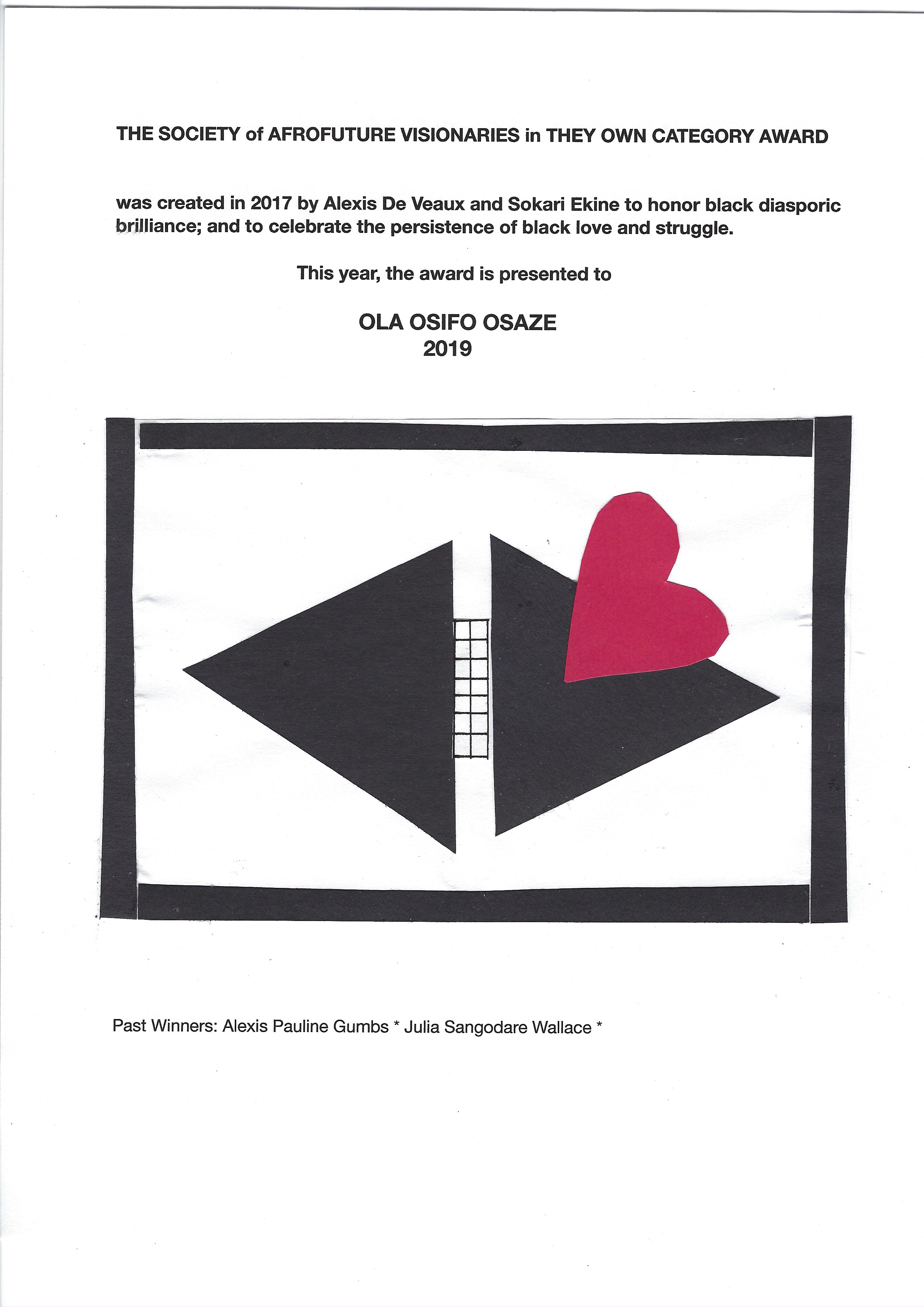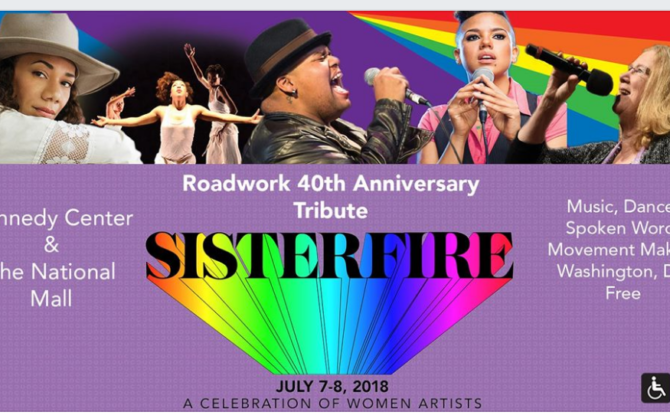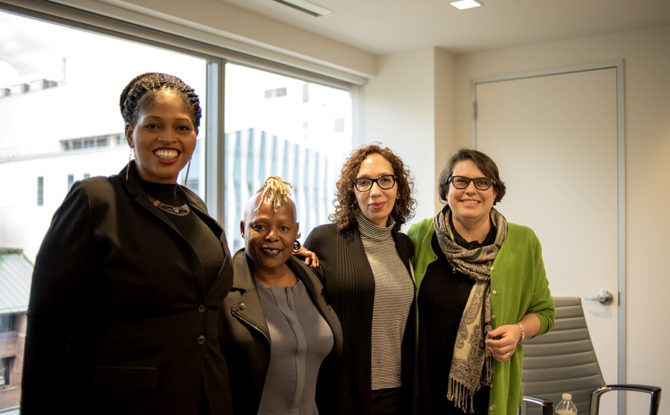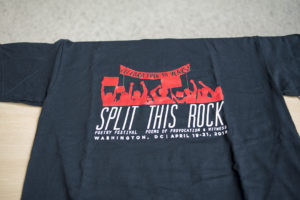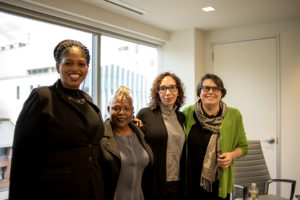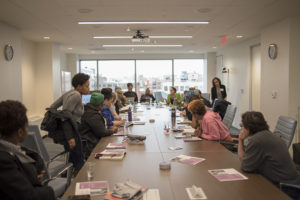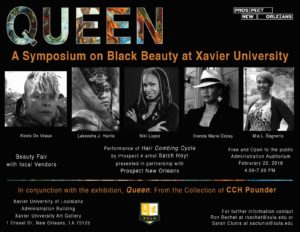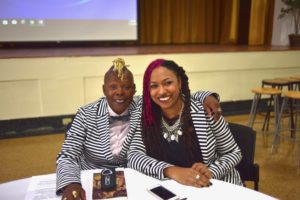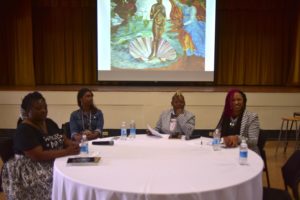This year marks the 40th anniversary of the Sisterfire festivals which began in the 1980s. Alexis regularly attended the festivals and will be present at this year’s anniversary celebration in Washington DC. Below is an excerpt from an interview with the Smithsonian American Women’s History Initiative on the importance of the Sisterfire festivals.
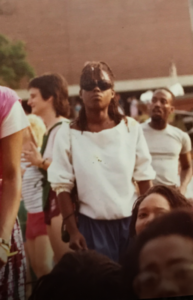
Alexis at the 1982 Sisterfire festival, Washington DC,
behind her is the black gay poet and activist, Essex Hemphill
Q: What are your memories of Sisterfire festivals in the 1980s? How did they inspire you?
A: I remember the Sisterfire festivals in the 1980s as not simply an event but an opportunity for community we all looked forward to. We were all hungry for, and needed, a sense of community that was local and global, and the Sisterfire festivals shaped a weaving of multicultural women’s voices that were necessary to surviving the Reagan era. As black, female-identified and lesbian, I felt particularly in need of, and inspired by, the ways in which Sisterfire politicized the erotics of our resistances.
Q: How did Sisterfire festivals elevate women artists of that era?
A: The festivals provided a venue for our collective visibility, by introducing us to each other across geographies, political agendas and economic realities. There were few, if any, such venues; certainly not another that prioritized a multicultural women’s world view in which art and politics merged in powerful couplings.
Q: How does the legacy of Sisterfire benefit young women artists today?
A: To the extent that we can create necessary intergenerational opportunities for cross-fertilization and knowledge exchange, the history and legacy of Sisterfire is poised to present women artists coming up behind us with a sense of —a model of—what is possible. That’s one of the things Sisterfire did. It made possible what had been impossible. And it can point the way to what can be done now.
Continue reading here
In 1982, Roadwork produced the first Sisterfire Festival at Takoma Park Jr. High School in Washington, DC. Initiated as a fundraiser during the severe arts-funding cutbacks of the Ronald Reagon years, Sisterfire featured women artists and welcomed all genders to participate in an open-air urban environment. This video was filmed by Victoria Eves and aired on several local cable channels as well as WETA televisio
Roadwork Documentary Project Teaser from Roadwork, Inc. on Vimeo.

The Smithsonian Folklife Festival joins Roadwork in celebrating its fortieth anniversary as a D.C.-based multiracial coalition that puts women artists on the road globally.

